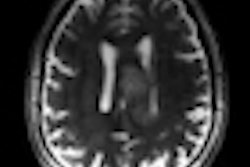Tuesday, December 1 | 11:40 a.m.-11:50 a.m. | SSG15-08 | Room N229
By evaluating cortical reorganization during a motor task, functional MRI (fMRI) could help assess the efficacy of a rehabilitation therapy in multiple sclerosis (MS) patients who are fatigued before and after therapy, according to this Tuesday morning scientific session presentation.The study enrolled 10 female multiple sclerosis patients suffering from fatigue. The women underwent a 1.5-tesla MRI study with a conventional protocol, followed by an fMRI sequence during a motor finger-tapping task executed with the dominant right hand. Researchers evaluated the total lesion load and activation for both examinations during the task.
"In multiple sclerosis patients, functional MRI could allow the evaluation in vivo of brain plasticity and in particular the assessment of cortical reorganization during task performance," said lead author Dr. Maja Ukmar from the department of radiology at the University of Trieste, Cattinara Hospital in Italy. "This reorganization occurs in the early stage of the multiple sclerosis disease and correlates with the extent of white and gray matter damage."
After the rehabilitation program, researchers noticed a significant reduction of activation mainly in the ipsilateral primary motor area, in the contralateral primary motor area, and in the thalami bilaterally. Reduction in activation also was observed in the cerebellum.
Based on the findings, Ukmar said functional MRI could help plot rehabilitation and pharmacological treatments for multiple sclerosis patients, which, in turn, "could influence the abnormal cortical activation. Thus, in the near future functional MRI could be used in the evaluation of the efficacy of different therapies."


.fFmgij6Hin.png?auto=compress%2Cformat&fit=crop&h=100&q=70&w=100)





.fFmgij6Hin.png?auto=compress%2Cformat&fit=crop&h=167&q=70&w=250)











